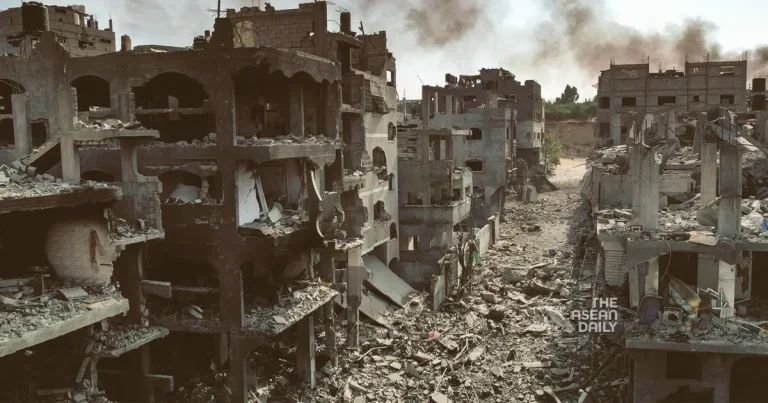10-3-2024 (CAIRO) Ongoing efforts to broker a ceasefire deal between Israel and Hamas in Gaza persist, as stated by Mossad, Israel’s intelligence agency, on Saturday (Mar 9). Despite growing pessimism regarding a truce during the Muslim holy month of Ramadan, Mossad chief David Barnea met with his US counterpart William Burns on Friday to advocate for a deal involving the release of hostages. The statement, distributed by Israeli Prime Minister Benjamin Netanyahu’s office, highlighted continuous contacts and cooperation with mediators to narrow gaps and reach agreements.
The blame game between Israel and Hamas over the apparent deadlock in talks has intensified in the lead-up to Ramadan, commencing on or around Mar 10. A Hamas source informed Reuters that the group’s delegation is unlikely to visit Cairo for talks over the weekend.
Mediation efforts involving Egypt, the United States, and Qatar have been ongoing since January. The previous deal in November led to a week-long pause in hostilities, during which Hamas released over 100 hostages, and Israel freed about three times as many Palestinian prisoners. However, Hamas attributes the current impasse to Israel, refusing to provide guarantees for a longer ceasefire and the release of 134 hostages still held in Gaza.
Mossad accuses Hamas of digging in its heels and intentionally escalating violence during Ramadan. Israeli officials insist that the conflict will only end with the defeat of Hamas, whose demands Prime Minister Netanyahu has termed “delusional.” In a Ramadan statement on Saturday, Hamas chief Ismail Haniyeh pledged to continue the fight against Israel until Palestinians regain freedom and independence.
Five months into Israel’s air and ground assault on Gaza, health authorities report nearly 31,000 Palestinian casualties. The conflict, triggered by an Oct 7 Hamas attack on southern Israel, resulted in 1,200 deaths and 253 hostages, according to Israeli tallies.
In Tel Aviv, thousands attended twin weekly rallies, with some anti-government protesters blocking a highway and others led by families of hostages calling for their release. Agam Goldstein, a teenager freed from Gaza in November, appealed to Hamas for humanity during the hostage rally.
International efforts to address the humanitarian crisis include charity workers loading relief supplies in Cyprus for a Gaza-bound barge. The United States plans to build a temporary floating dock off Gaza’s coast for aid delivery, coordinating with Israel on inspections.
Tensions persist on the Israel-Lebanon border, with reports of an Israeli strike killing a family of five in southern Lebanon. The Israeli military is investigating the incident.
ISRAEL STRIKES RAFAH RESIDENTIAL TOWER
In an escalation targeting the last area of Gaza not yet invaded by ground forces, Israel struck one of Rafah’s largest residential towers. The 12-floor building sustained damage, displacing dozens of families. Israel claims the tower was used by Hamas to plan attacks on Israelis. Residents received a 30-minute warning before the nighttime strike, raising fears of a broader assault on Rafah.
Hamas alleges that four Israeli hostages died in strikes, a claim not substantiated by evidence. Israel, which declined to comment, views such statements as psychological warfare. The offensive has plunged Gaza into a humanitarian catastrophe, with much of the enclave in ruins and the majority of its population displaced. The UN warns of disease and starvation, and the death toll from malnutrition and dehydration in Gaza has risen to 25, including three children at Al Shifa Hospital.




